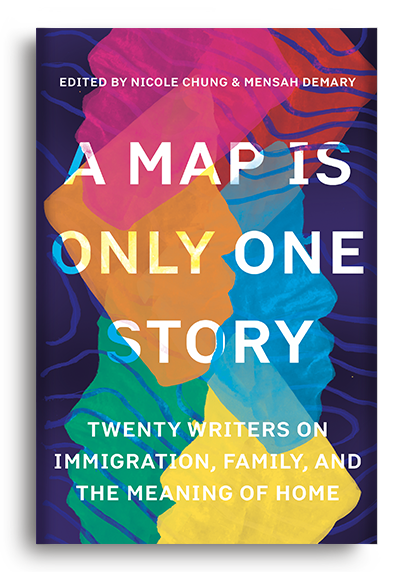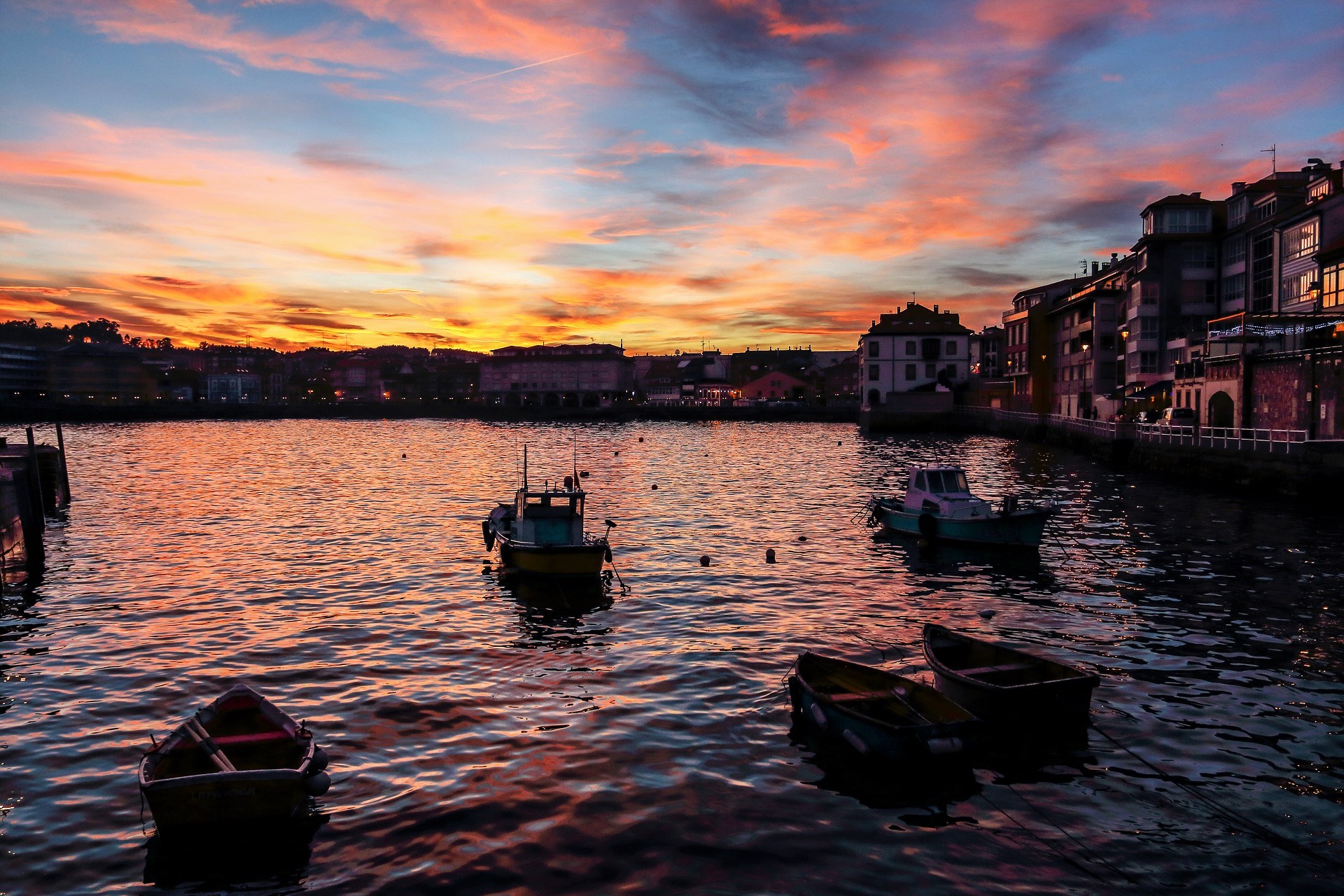The world outside the car windows is splashed in October grays and late-fall browns. The White Mountains are colored by rain and rattled with winds that promise the coming winter. The weather is not on our side. It’s been years since the three of us have been together in one place, and we’re here for my dad. We’re going to find Hawthorne Falls.
“You ready?” I asked.
“Yep,” Ryan replied as he settled into the passenger seat and fastened his belt.
“Dad?”I looked over my shoulder to see my towering father pretzeling himself, grey beard, dark glasses, and all, into the backseat of the Honda Civic.
“Let’s go.”
“Gentlemen, have you ever heard of Celtic death metal?”
Ryan blinked.
“I’m guessing we’re about to,” Dad said.
I smiled, hit play on the car stereo, and cranked the volume as the lilting flutes, whirring hurdy-gurdy, and crushing guitar riffs of Eluveitie surged from the factory-standard speakers. I might be a dad now, but I’m still metal.
Traveling over roads that climbed the frequent, terrain-defining hills around the towns of Littleton and Bethlehem, our conversation is unforced and casual. Ryan and I have been friends since we were 16. Now, 40 isn’t so far away. In high school, we bonded over 90’s action movies, brash humor, and not caring about “fitting in.”
According to the high school paradigm, it was a friendship that didn’t make sense. He was a high school basketball star and I was the kid that wore Star Trek t-shirts back before being a geek was cool, or even accepted. You got ragged on, insulted. Bullied. We understood each other as outsiders, and through a shared struggle with anger.
The friendship lasted. Through college drama and into the responsibilities and shifting priorities of adulthood. We’re fathers now, each with our own family. The offbeat sense of humor is still there, just not when the kids are around.
We leave the pavement behind, turning on to a sodden dirt road. The tires rumble and shake over the rough surface. My phone speaks, the omnipotent GPS directing us to the trail-head. My dad doesn’t say anything, I feel his disapproval. The man has an atlas in his head. Directions are not my strong suite.
We find the Gale River trail-head and park. Mist hangs in the air. Ryan and I are both wearing nylon, quick-drying, hiking clothes. My dad managed to avoid wearing cotton. To protect himself from the rain, he puts on heavy, tarp-like motorcycle rain gear. I already know that stuff won’t breathe, and I start to worry. Overheating is a real risk.
We strap our packs on and go. I carry spare clothing, food, a forest axe, a camping woodstove, and the gear to make tea on the trail. It seemed like a good idea when I was packing.
“You sure that won’t be too heavy?” Ryan asks.
“Nope, left most of my heavy stuff at home. Should be good.”
“But you have an axe.”
“It ‘tis but a small one.” My British accent is bad.
The trees are black slashes against a shining carpet of yellow and brown. Water droplets spatter down throughout the forest, raising a staccato that accompanies each footstep, each breath. The parking lot disappears behind us. My phone is in airplane mode to preserve its life and grant us access to the GPS when needed. Graded roads and electronic tethers fade away and the northern forest envelopes us in its silent embrace.
The trail is wet, but not yet a bog. The trees stretch above us, birch and maple and balsam, a patchwork of fall vibrancy that stands against the gossamer gray of October rain. The conversation flows, ranging from Ryan and me talking about our young families, bushcraft, and the plan for our ascent. Our familiar companionship breathed in the silent woods.
A few miles of trail covered and we reach the Gale River. The water strains against the banks and whips over the rocks. We cross, stepping on stones that still peak above the white foam and crystal rivulets. I dare to hope I don’t slip.
Map check: the river crossed, this is where we leave the trail. Upstream, hugging the river as close as the terrain will allow, is our next course. The falls are in this direction, somewhere through dense growth, above us on the mountain at an elevation of 3,000 feet.
There used to be a trail here, but it’s gone now, washed away in the 1930s by a hurricane and never restored. Other people have made their way to falls before us, and documented their travels on various websites. We knew where to go, approximately. What we didn’t know is that the latitude and longitude of the falls, as officially recorded by the U.S. Geological Survey, is off by one-half mile. The error had been dutifully perpetuated over the years. The red arrow on my phone, our primary navigation, was wrong.
Ryan stops, looking closely at the grass and dead stalks ahead of us. He points.
“Look at how the ground dips down here, and rises there, all along this entire length. This is where the trail used to be.”
Dad steps up next to us. “It breaks up further down, you can see this is where the river floods its banks, but I think you’re right.”
I just nod and issue an agreeable Hmmm.
The course of the terrain pulls us away from the river, but we keep it in earshot. The brush turns into small trees, bramble, and assorted burs. The talking stops as we focus on finding secure footing through the undergrowth.
I look back at dad, watching for heavy breathing or unsteady steps. He’s in decent shape, but he doesn’t do this regularly.
Ahead, Ryan, has paused to check on us. The trek is marked by constant safety checks and excuses to rest disguised a pauses for conversation. There’s no planning or discussion around this, it’s simple rhythm.
We find our way back to the river’s edge, the terrain flattening out a bit and the growth opening up and allowing larger patches of sky to shine down. The forest itself seems to relax and not blanket the land so thickly here. Before us is a granite shelf, shaped a bit like the front end of a WWII tank. Angular and blocky. The river cascades down the face of the granite in sheets of white to the cacophonic symphony of its own decent.
“These aren’t the falls, are they?” Ryan says.
“Can’t be, they’re not tall enough, and we’re not in a box canyon like I’ve seen in pictures,” Dad replies.
“Funny story,” I say,” These are called Hawthorne Cascades. The falls are still a mile upstream, but a lot of people make it this far, think they’ve found the falls, and turn back.”
We take some time to appreciate the cascades, resting our legs and drinking water. Ryan and I snap pictures while my dad sits on a stone and simply takes it in. He mops the sweat off his brow. Somewhere along the way, he managed to catch the side of his rain jacket on a branch, and the tarp-like material tore wide open on the side. I’m a bit damp from the rain, but my nylon layers of quick-dry material are still keeping me fairly warm. Without saying much, I take my lightweight hiking raincoat out of my pack and offer it to him. “Here, this will breathe better and keep the worst of the rain off you. If those pants don’t hold up, I have actual rain-proof hiking pants.”
“What about you?”
“I think my legs will be okay, these pants shed water pretty effectively, and I have more layers in my bag, including another waterproof jacket. I’m good. Try it. Trust me.”
Satisfied that I’m not making a sacrifice, he accepts the jacket and stuffs his own into his pack. The rain has abated for now. We shoulder our bags, take one more drink, and ascend the bank along the cascades.
Immediately above the cascades is a swath of bare granite, made slick by rain and the Gale River. Unconfined by any banks, the river spread itself thin and swift over most of the rock face, the center being slightly deeper as the rock is worn by centuries of erosion. This is one of the last open spaces we encounter on our trek.
At the top of this table the woods close back in and the river resumes its standard form. We’re able to walk along the river’s edge on wide granite slabs that form ersatz steps. Orange leaves till cling to the trees. Deep pools and small cascades frequently manifest along the stream. Verdant moss covers the untouched stone. A fall here could break an arm or leg, but we can move quickly. We take the risk.
The stone steps run out and the water comes right to edge of the river bank. We climb back into the woods, but this is very different than before. Ryan, being the most experienced woodsman, takes the lead, I’m in the middle, dad brings up the rear. It’s impossible to see farther than 20 feet ahead. Branches and limbs crisscross in front me, scratching at my arms, slapping against my chest and leaving dark lines of soaking rain water along with flakes of bark and moss. The ground is no longer the ground.
Large trees grow from the steep slope, and their roots stand above the rocky soil in a network of curling, thick tendrils. They support our weight, but leaves cover much of the area and hide little gaps that lead to steep drops. They wait for a single misstep that will allow them to swallow one of us right up to the thigh. Some of the gaps are big enough for us to fall into completely. Pitfalls, shadowed with decay and slashed by grey light bleeding between the roots. These are ugly woods, and unforgiving of inattention.
I pull out my phone and check the map. The falls are a red arrow a mile away. The river bends away from us. We can hear it, but it’s a dull roar threading its way through the stuttering rain.
Dad looks over my shoulder at the screen. “Think we should cut a straight line to falls?
I nod. “Yeah, as much as we can.”
“We’ll probably have to move up and down the hill. It’s getting thicker ahead, but it might open up down there,” Ryan says and points to a wall of half-dead evergreens.
Putting away the phone, I take a drink of water, stretch my back, and say, “Let’s do it.”
We find the falls through sheer luck, despite the faulty coordinates. After pushing through sodden branch after sodden branch, traversing up and down the steep grade of the mountainside, we pushed down to the edge of the river, almost directly on top of the falls. We stepped out onto some rocks, only feet away from the edge. We couldn’t see how far down the drop went, but it was far.
“This has to be it,” dad says.
“It seems like it, but the map says the falls are still further upstream. At least another half-mile.” I show the screen to both dad and Ryan, pointing to the all-knowing red arrow.
“Are you sure?” Ryan asks.
“I’m not, this certainly looks like the falls, but we confirmed the latitude and longitude in the phone before we came out here, remember dad?”
“I do. Well, let’s see what’s upstream.”
I’m not proud of this part, that I trusted a smartphone over my own eyes and logic, but we wasted at least an hour trying to push further upstream. We didn’t even make it to the position indicated on the phone. At some point, a storm had blown down hundreds of trees on this side of the mountain, and we simply couldn’t press on further.
It was decided we’d head back to what we were suspected were the falls.
We should have trusted our instincts. Perched upon large boulders that sat in the stream, we looked up at Hawthorne Falls. Cascading from forty feet above, torrents of white water tumbled down granite steps in an endless hurtle towards a final destination. I don’t know if New Hampshire has box canyons, but it felt like we were in one. Gray and green stone rising on either side and the river cutting away from the falls through forested ground that sloped down to the water in converging lines.
Leaning over to speak into my ear, the roar of the falls was constant.
Ryan deadpanned, “I hope this thing doesn’t flash flood. We’d be fucked.”
I laugh, thinking he has a point. After three hours of pushing through ugly, drenching woods, I’m not going to rush this. Dad sits on one of the boulders, taking in the falls. He looks up at me, wiping his brow with a handkerchief that he always seems to have at hand. Ever since I was a kid he could produce one of those things like a magician.
Catching his breath, he says, “I have wanted to do this for decades.”
“Any reason?”
“No, just something I wanted to do. Thank you for doing this with me.”
“Glad to. This is beautiful.”
If we were different men, we’d probably hug. I remember a time, back when I was in fourth grade, that he brought in the glasses I had forgotten at home. Right there, in front of the classroom, I’d wanted to hug him but held back.
A year before that, my oldest brother passed from cancer. Lost in tears wrought by a pain that no one that young should feel, I wanted to crawl into the empty pit that opened up inside me and never come out. He held me. But that was different. Men from the North Country like to think they’re made of granite, but in earned moments of joy and loss, cracks appeared.
And it was okay.
We stayed for several more minutes, filling our water bottles with filtered river water, taking pictures, and simply absorbing our surroundings. You could feel that not many people had been here over the years. I asked Ryan to snap the last photo, me and dad standing shoulder-to-shoulder, the falls behind us.
The rain picked up. We changed into drier gear, shouldered our packs, and climbed back into the woods. I looked back a few times, but the river disappeared quickly as the branches closed back in. I could still hear it, just beyond sight, accompanying us on our way back down the mountain. Ryan in the lead, me in the middle, and dad the rearguard. During the final stretch, when my bad ankles gave into fatigue and started turning on the rocky trail, my dad spoke up. “You okay?”
“Yeah, this happens sometimes. Just have to be careful.”
“You need new boots. That’s not good.”
“I’ll be okay. No worries.”
“I’m your dad. It’s my job to worry.”











![K. Towler [credit: JONATHAN WIGGS/GLOBE STAFF]](https://images.squarespace-cdn.com/content/v1/543d9b11e4b0847bb28295dc/1558047391105-9DLM4FMLCMGVFG7WHZ4D/KT.jpg)







